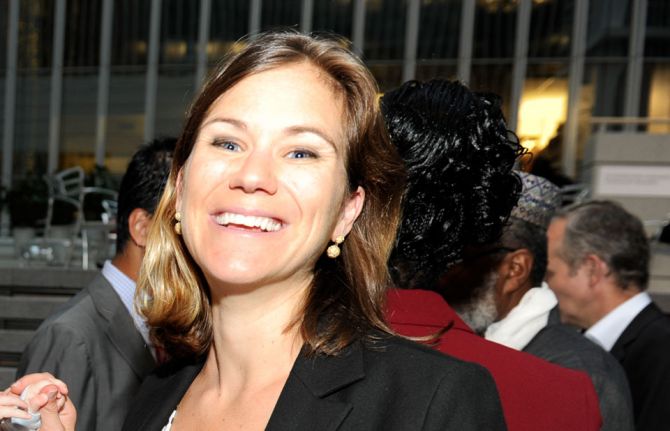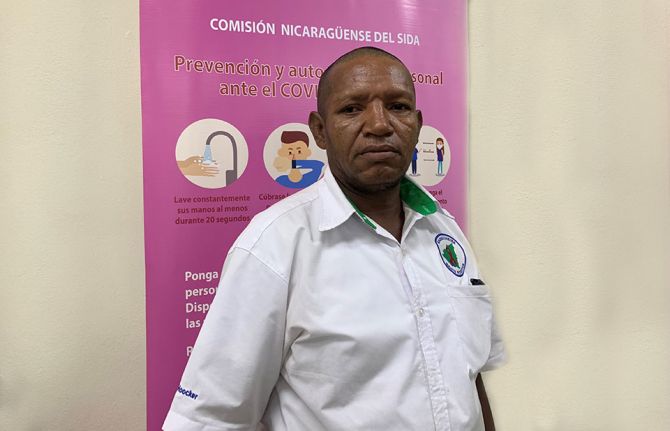
Feature Story
Vulnerability of indigenous peoples to AIDS insufficiently recognized in international response
10 June 2010
10 June 2010 10 June 2010
Couple in Ecuador Credit: P. Virot
Indigenous peoples need to be identified as a priority group in the HIV response, the Report of the 5th International Policy Dialogue in Canada has clearly indicated. The report also called for a better integration of indigenous peoples into the international response to AIDS.
Health Canada, in collaboration with UNAIDS and Public Health Agency of Canada, hosted an International Policy Dialogue on HIV/AIDS and Indigenous Peoples in Ottawa, Canada, in October 2009. The dialogue provided a platform to discuss the impact of HIV on indigenous peoples, and to explore a way forward in terms of research, policy and programme development.
The final report that emerged out of that dialogue states that the relationship between HIV and indigenous peoples has not received due international attention, despite the fact that indigenous peoples have particular vulnerabilities to acquiring HIV.
The report identifies patterns of transmission for indigenous men and women, including a higher proportion of new HIV diagnoses among indigenous peoples; high rates of HIV transmission among indigenous women, particularly in developing countries; and, a younger age of HIV infection of indigenous peoples compared with the non-indigenous population in some countries.
Given these vulnerabilities, the report calls for the identification of indigenous peoples as a priority group. It also calls for countries to develop national strategies for HIV and indigenous peoples and to advocate for AIDS service organizations to develop culturally-appropriate services for indigenous peoples in partnership with indigenous communities’ representatives.
Identifying limitations of current systems for surveillance and data collection, the report notes how indigenous people are often invisible in reported statistics. It also discusses how best to leverage international policy instruments, such as the UN Declaration on the Rights of Indigenous Peoples (UNDRIP) and ILO Convention 169 (Indigenous and Tribal Peoples Convention).
The report welcomes the creation of the International Indigenous Peoples Working Group on HIV/AIDS (IIHAWG), with participants during the dialogue expressing belief that it could provide a unified voice for indigenous peoples. It recommends the IIHAWG meet annually, beginning with preparations for indigenous participation before and during the XVIII International AIDS Conference in Vienna in 2010.
UNAIDS observes that the several key risk factors that render individuals and communities acutely vulnerable to HIV are present in large numbers of indigenous populations worldwide. These factors include lack of political and social power, socio-economic disadvantage including poverty, lower education standards and subsequent lower health literacy and stigma and discrimination relating to race, sexuality and HIV status.
Approximately 50 stakeholders participated in the three-day dialogue, including from New Zealand, Australia, North, Central and South America, from indigenous peoples’ communities and networks, and from both government and non-governmental organizations.
Right Hand Content
Partners:
Health Canada
Public Health Agency of Canada
Feature stories:
International Day of the World's Indigenous People focuses on AIDS (11 August 2009)
External links:
UN Declaration on the Rights of Indigenous People
UNPFII - United Nations Permanent Forum on Indigenous Issues
ILO Convention 169
Publications:
HIV/AIDS and Indigenous Peoples: Final Report of the 5th International Policy Dialogue (pdf, 603 Kb.)
Related
 A tribute to Maeve Kennedy Townsend McKean
A tribute to Maeve Kennedy Townsend McKean

09 April 2020
 AIDS care in the Californian desert
AIDS care in the Californian desert
12 February 2019

